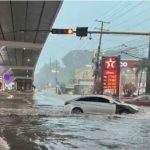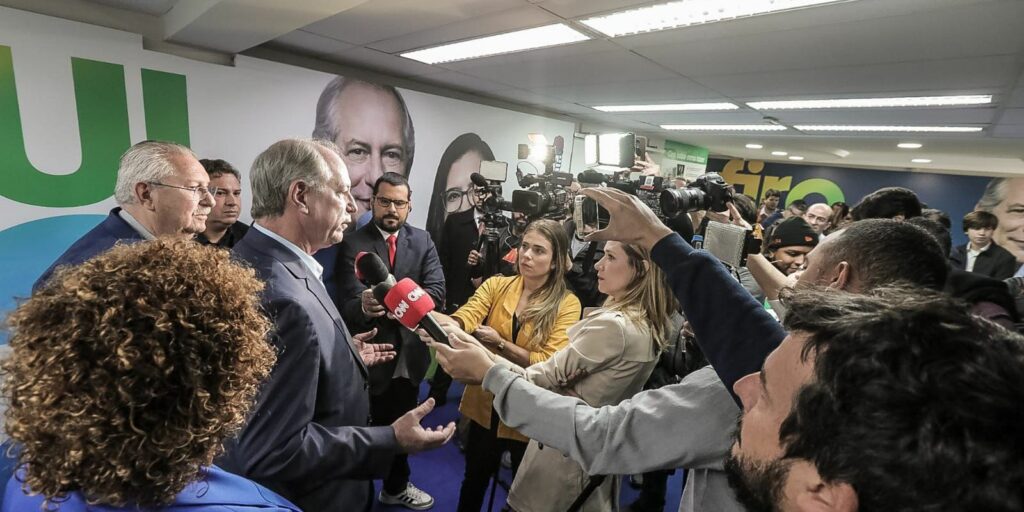It was not an easy week for President Gabriel Boric. Days prior to her trip, she had to face the mediatic and controversial resignation of the head of advisors of the Second Floor, Lucía Dammert, who was an important piece in her design and part of the delegation in the New York instance. And on the same day the impasse diplomatic relationship with the Israeli ambassador that, at times, seemed to escalate into a larger conflict, but about which – after repeated explanations by the Government – calm waters were managed. This, although there is really no certainty about the side effects it could have. That’s why all eyes are on the first presidential visit to the United Nations Organization (UN) and the signs that the Chilean President will be communicating.
And it will precisely open its activities today, giving a speech before the Plenary of the 77th period of sessions of the UN. According to itinerary, he will be the third ruler to speak, after the words of Jair Bolsonaro, the president of Brazil, and Joe Biden, the homeowner, who will speak second.
“Chile has a new government, the youngest president in the world, and the fact that he is from the left, are factors that make his speech a novelty for the international community,” says sociologist and former ambassador Boris Yopo.
He adds that it is important to leave the Chilean brand positioned. “They are going to listen to him with interest, because both the constitutional process and the presidential election were followed all over the world. I think that Boric is going to take advantage of sending some messages to the interior, to the citizen, since there are people who were a little concerned with the results of the (plebiscitary) election. Those messages should be: that Chile must enter a period of more conversation, of agreements.”
The constituent process
However, for many analysts and representatives of the democratic world, the result of the plebiscite is the “elephant in the room” for Gabriel Boric during his visit to the UN and, especially, in the meetings he will hold with investors. This is because it is known that the Government supported the I Approve option, which it lost in the voting due to a comfortable victory for the Rejection with 61.86% of the preferences.
“Chile is in the process of building an institutional arrangement”, is one of the messages that the doctor in Political Sciences, Robert Funk, believes that Boric will give. The academic from the U. de Chile assures that it should be taken into account that the speeches of the presidents at the UN have two audiences: “One tends to think that they are speaking to the other countries, or to the leaders present. But a lot of times, along with that, they’re speaking to a home audience.”
The academic of the U. de Talca and doctor in Political Science, Mauricio Morales, points out that the President should point out something “simple” about the constituent process: “It is in Congress where the discussion about the new constitutional process is housed, hoping that a good agreement will be reached to move forward.” This is because, in his opinion, “the President and the Government played to the limit of interventionism in the previous process, and it is not healthy for democracy that the Government is once again the protagonist of a debate that takes place in Congress.”
“I don’t think it falls into analyzing why it was lost or won, but instead highlighting the positive to speak on behalf of the entire country. Reveal that there was an impeccable electoral process, that at 8:00 p.m. we already knew the results, that we had an unprecedented electoral participation, and that this process will continue, and that Chile will have a new Constitution”, Yopo points out about the foci that he believes that could be convenient for the Head of State.
And he adds: “Certain ideas are installed in the world, and it was installed that follows the Pinochet Constitution: that is a very bad image for Chile.” And as a result of this sentence, he stresses that it is important to send the message that the country would have a new Constitution next year, which would coincide with the fiftieth anniversary of the military coup. The signal that the President should give is: “Chile, 50 years after the military coup, is going to have a new Constitution.”
The director of the School of Government and Communications of the Central University, associate researcher of FLACSO, Marco Moreno, agrees that the President will probably focus on the constituent process rather than on results: “Una Convention elected by citizens, with equal representation, with representation of the native peoples, which met the deadline. The approach of some parliamentarians from Chile in the sense that they do not refer to this issue does not seem reasonable. Let us remember that foreign policy belongs to the State, not to a Government in particular, therefore, the President, as a representative of the State, probably cannot ignore this aspect that is central to the recent history of Chile”, he adds.
Pablo Cabrera, lawyer, counselor of the CEIUC (Center for International Studies of the Catholic University), and former diplomat, maintains that the president’s words will be inserted in what was the plebiscite, since “Boric and his Government showed that the new Constitution was a central axis for the fulfillment of its program. Specifically with regard to its foreign policy, such as the Trade and Comprehensive Modernization Agreement with the European Union, and the Treaty known as the TPP-11, which, according to the Government authorities themselves, the processing was postponed for after the plebiscite”.
Multilateralism and defense of the environment
Boris Yopo indicates that one of the keys he can use is to “emphasize the importance of multilateralism,” because according to the sociologist this has been part of Chile’s foreign policy tradition and “Boric values it.” In Moreno’s opinion, the Chilean president is “trying to install a regional leadership, we don’t know if it will work for him, but he is trying to impose a style, and he probably refers to the idea of unity, of the union of Latin America, of the developmentalism, of the need for integration, which have been axes of Chilean foreign policy”.
According to the diplomats, the drought in Chile and the geomorphology of the country place us “as an author with credentials to deal with climate change.” An issue that has acquired great importance, due to the drought that countries in Europe have suffered, as well as Chinese and Indian.
Boris Yopo explains that in his opinion Boric should refer to one of those he considers “its great guidelines in foreign policy, which are highly valued in the world: the protection of the environment”.
The pandemic is another of the cards that Boric should use in the speech. “It would be fair to highlight that Chile has handled the pandemic well. It would give the sensation of a country of State policies, with its own institutionality of how it has faced the situation. When Latin America has been one of the continents hardest hit by the pandemic in terms of employment, death, poverty lines, ”explains Pablo Cabrera.
Investors and the impasse with Israel
One of the objectives of the President’s stay in New York is to promote investment in the country. These are work sessions with businessmen at the headquarters of the Council of the Americas, where its CEO Susan Segal will be present; and meetings with the Secretary General of the OECD, Mathias Cormann, and with the President of the World Bank Group, David Malpass.
Robert Funk assures that after the incident with Israel, where President Gabriel Boric suspended a scheduled meeting with the Israeli ambassador in Chile, speaking with groups of investors is key “show signs that the process that Chile is going through is not going to have a significant impact on what has been the traditional way of dealing with international trade, which is to be open to free trade. If it starts to indicate a turn or a change, that’s going to draw attention.”
“The problem that is open to Boric is that he must decide. On the one hand he wants to attract investment, but he wants that to happen under his terms. He wants Chile to become the example of a new, modern, progressive and environmentally concerned left. But those issues often conflict with investors’ concerns. He must find a way not to back down from the progressive discourse, which is so important to him, while assuring the international community that Chile remains a country interested in international trade. And I’m not sure they’ve found a way to square that circle,” adds Funk.
The doctor in Political Sciences explained that the most probable thing is that “lhe talks with Israel managed to lower the volume” of the problem a little, but he points out that “in some circles attention has been noted in the suspension of the meeting with the Israeli ambassador”, for what this position of the Government of Chile means regarding “The way in which foreign relations are conducted, and how Boric chooses to use his position to send signals that clash a little with the customs and traditions of what Chilean foreign policy has been. Also, The United States is an ally of Israel. So you can view with concern those who signal that they are more interested in an alternative position in the international community. What could happen is that questions come up when I talk to investors and in the forum at Columbia University.”
Mauricio Morales explains that “the damage to foreign policy and relations with Israel has already been done. Now all that remains is to control that damage and try to leave as little bruised as possible. The government’s big problem is that its foreign policy and international relations team has already made too many mistakes, which makes the president insecure.”
Another of the doubts that Funk assures that investors will have is the position of the Government regarding TPP-11 and other international trade agreements. On this point, the former diplomat Boris Yopo assured that “at this point it is possible to explain what the Government is up to. That it has not been closed to approving it, but that it wants clarification on some points that are very sensitive -such as the solution of conflicts through of international courts-, and that these clarifications have been requested from the countries involved in the treaty, in what are called the side letters. And make it clear that if these points are cleared, it will most likely be approved”. However, he assures that “in the government coalition there is a big division in this regard.”
For Morales”The President should only point out that it is a discussion that is taking place in Chile, along with making the Government’s position and arguments transparent. Nothing more”.


















